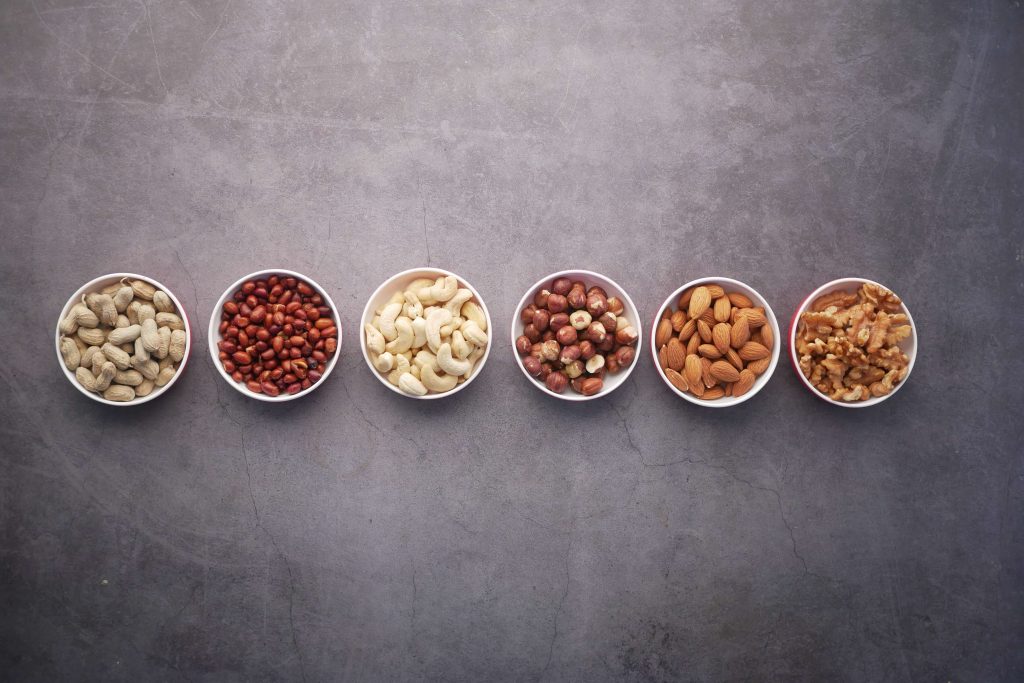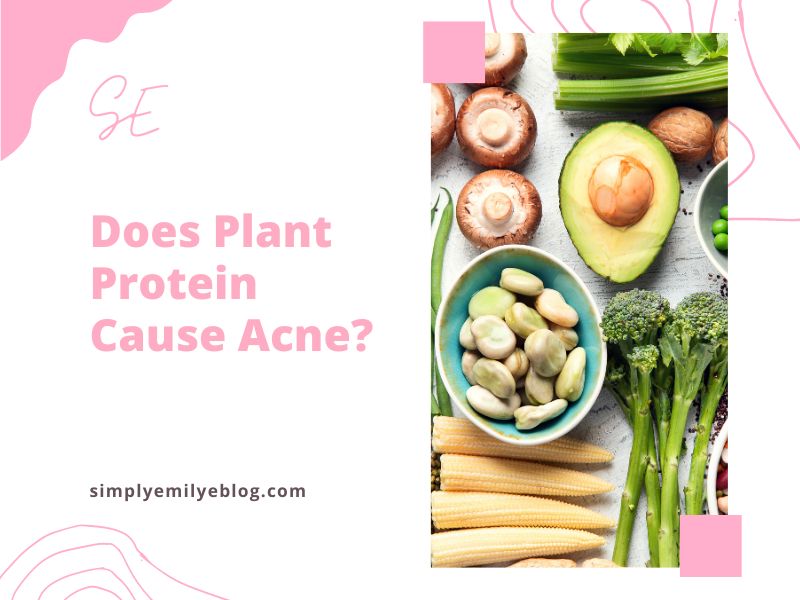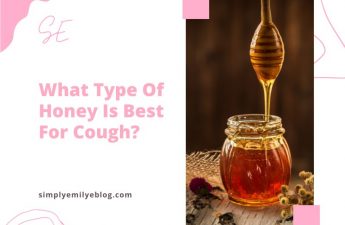Are you struggling with achieving clear skin despite incorporating plant-based protein into your diet? You’re not alone. There’s a common misconception that plant protein causes acne, but the truth is more complex than that.
Does plant protein cause acne? As a health and wellness enthusiast, I was curious about the relationship between plant protein and acne. Does it really cause breakouts? Is it better or worse than animal protein? After some research and personal experimentation, here’s what I can tell you.
Plant Protein 101
For those who are new to the world of plant-based diets, let me introduce you to plant protein! Plant protein is a type of protein that comes from sources such as peas, beans, soy, nuts, and seeds. It’s an important part of a balanced diet that can be very beneficial to your health.
Nowadays, people are becoming increasingly aware of the many benefits that plant-based diets have to offer. They are a great way to improve your overall health, reduce your risk of various diseases, and support the environment too! Plant protein is an essential component of these diets and can help you to meet your daily protein needs without relying on animal products.
But is plant protein a cause of acne? This is a common question that many people have when they first start exploring a plant-based lifestyle. To be clear, there is no scientific evidence to suggest that plant protein causes acne. In fact, many people report that their skin clears up when they switch to a plant-based diet!
There are many benefits of consuming plant protein. For starters, it’s a great source of fiber, which can help to keep you feeling full and satisfied. Additionally, it’s typically less calorie-dense than animal protein sources. This means that you can consume a larger quantity of food while still consuming fewer calories overall.
If you’re looking to incorporate more plant protein into your diet, there are many sources to choose from. Some of my personal favorites include lentils, chickpeas, tempeh, and edamame. You can add these to salads, stir-fries, soups, stews, and so much more!
What Causes Acne?
Acne is a complex skin condition that is influenced by a variety of factors. While many people believe that only certain foods or lifestyle habits can cause acne, the truth is that there are many different factors that can contribute to acne formation. In this section, I’ll cover some of the most common causes of acne.
Hormones
Hormonal imbalances are a common cause of acne. Androgens, which are male hormones that are also present in females, can cause overproduction of oil in the skin and clog pores. This is why acne is most commonly seen during puberty, when hormone levels are fluctuating rapidly. Hormonal imbalances can also occur during pregnancy, menstruation, and menopause, which can cause acne breakouts.
Genetics
Acne can also be hereditary. If your parents or siblings suffered from acne, there is a greater likelihood that you will develop it as well. This is because genetics can influence several factors that contribute to acne, including oil production, inflammation, and the skin’s ability to shed dead skin cells.
Environment
Environmental factors such as exposure to pollution, dirt, and heat can also contribute to acne formation. Studies have shown that people who live in areas with high levels of air pollution are more likely to develop acne. Additionally, exposure to heat and humidity can lead to excessive sweating, which can clog pores and lead to breakouts.
Diet
While there is no direct link between diet and acne, some studies have shown that certain foods may trigger breakouts in some people. For example, high glycemic index foods such as white bread and sugary snacks have been linked to increased acne risk. Additionally, dairy products and foods that are high in saturated and trans fats may also contribute to acne formation.
Stress
Stress can also be a contributing factor to acne formation. When you are under stress, your body produces elevated levels of cortisol, which can increase oil production and inflammation in the skin. Additionally, stress can cause you to pick at your skin or touch your face more frequently, which can introduce bacteria that can lead to breakouts.

Link Between Protein and Acne
As someone who takes their skin health seriously, I was intrigued by the idea that plant protein could be linked to acne. After all, protein is an essential macronutrient that plays a crucial role in building and repairing tissues, including our skin.
However, the question remains: Can too much protein, especially plant-based protein, cause acne breakouts?
While there isn’t a clear-cut answer, some studies suggest a possible link between high protein diets and acne. Here are some key findings:
- A 2018 study published in the Journal of the Academy of Nutrition and Dietetics found that consuming a high protein diet (greater than 20% of daily calories) was associated with a 23% increased risk of developing acne.
- Another study, published in 2017 in the journal Nutrients, found that a high protein/low glycemic load diet was associated with a higher prevalence of acne in young adults.
- It’s worth noting that the research on this topic is still limited and more studies are needed to fully understand the link between protein intake and acne.
So, why might protein be linked to acne? One possible explanation is that consuming excess protein can increase insulin-like growth factor 1 (IGF-1), a hormone that has been shown to stimulate sebum production. Sebum is the oily substance produced by our skin’s sebaceous glands, and excess sebum can clog pores and lead to acne.
Another theory is that high protein diets may alter the composition of the skin’s microbiome, leading to inflammation and acne.
So, should you swear off protein altogether to keep acne at bay? Definitely not. Protein is still an important nutrient for overall health and well-being.
Instead, focus on consuming a balanced diet with an appropriate amount of protein for your needs and consider incorporating more anti-inflammatory foods like fruits, vegetables, whole grains, and healthy fats. If you’re interested in learning about the refrigerated lifespan of cooked tilapia, I have a fantastic article you should check out. Whenever you’re ready, give it a read.
Does Plant Protein Cause Acne?
If you’re like me, you’ve probably seen various conflicting information on whether plant protein causes acne. Some sources suggest it does, while others say it doesn’t. As an expert, I have looked into this topic extensively and am here to debunk the myth once and for all!
Firstly, I want to clarify that there is no direct link between plant protein and acne. In fact, a study published in the Journal of European Academy of Dermatology and Venereology found that a plant-based diet can actually improve skin clarity. However, there are a few indirect factors that may contribute to acne in some individuals who consume plant protein.
One of the most common indirect factors is an imbalance of hormones. Some plant-based proteins, such as soy, contain phytoestrogens that can replicate the effects of estrogen in the body. This can lead to imbalances in the hormones, which may contribute to acne in some individuals. However, it’s worth noting that these hormonal effects are minimal and not a concern for most people.
Another indirect factor is the consumption of high-glycemic plant-based foods. These foods can quickly raise blood sugar levels, leading to an increase in insulin secretion. This hormonal response can lead to inflammation, one of the main contributing factors to acne. It’s essential to keep in mind, though, that not all plant-based foods are high-glycemic. But give me a second. If you’re interested in the healthiness of Eggo waffles, I’ve written a remarkable article. Read it whenever you find the time. Consuming a wide variety of nutrient-rich plant-based foods can help keep blood sugar levels stable and reduce the risk of acne.
But. Some people may be sensitive to certain plant-based protein sources, such as wheat or soy, which can cause an inflammatory response and contribute to acne breakouts.
If you suspect this may be the case for you, try eliminating these foods from your diet and see if your skin improves.
Benefits of Plant Protein
Plant protein sources offer a wide range of health benefits that make it an excellent option for those looking to incorporate more protein into their diets. Here are some benefits of plant protein:
Low in saturated fats
Most plant-based proteins are naturally low in saturated fats, which can help reduce the risk of heart disease. It’s no secret that a diet high in saturated fats can have negative effects on our overall health. By choosing plant protein sources, you can enjoy your protein without having to worry about negative side effects.
Rich in fiber
Fiber is crucial for maintaining healthy digestion, and plant-based proteins are a rich source of fiber. It helps regulate blood sugar levels, which further benefits our overall health. Eating a diet high in fiber can lower the risk of chronic diseases such as colon cancer, type 2 diabetes, and heart disease.
Good for the environment
Plant-based protein sources are a great way to reduce our carbon footprint. Meat production, especially beef and lamb, emits high levels of greenhouse gases such as methane. By choosing plant-based proteins, we can help reduce the amount of greenhouse gases emitted into the environment.
How Much Plant Protein is Safe?
As someone who’s always on the lookout for healthy and nutritious foods, I understand your concerns about the safety of plant-based proteins. While they offer numerous benefits to our bodies, it’s always important to consume them in moderation to avoid any adverse effects. So how much plant protein is safe to consume on a daily basis? Let’s find out.
According to the American Heart Association, the recommended daily intake of plant protein for adults is around 20-30 grams per day. However, it’s important to note that this is a general guideline and the actual amount may vary depending on several factors such as age, weight, physical activity, and overall health.
Several studies suggest that consuming high amounts of plant protein supplements may cause some adverse effects such as bloating, nausea, and digestive issues. Just a small heads up first. I’ve written a fantastic article that delves into the number of calories in rice and beans. That’s why it’s recommended to get protein from a variety of sources such as beans, lentils, nuts, seeds, and vegetables.
Here are some additional small tips to keep in mind when consuming plant protein:
- Make sure to read the labels carefully and choose products that are low in added sugars and refined carbohydrates.
- Consult with a nutritionist to know what’s the right amount of protein you need depending on your individual needs.
- Consider combining plant proteins with other macronutrients such as healthy fats and carbohydrates to maintain a balanced diet.
- Maintain a healthy lifestyle by staying active and engaging in regular exercise to avoid any potential health risks.
By following these guidelines and making sure to consume plant protein in moderation, you can reap its many benefits without any worries. A varied and balanced diet is always the key to a healthy and happy life.
Balanced Diet for Healthy Skin
Maintaining a balanced diet is not only essential for optimal health but is also key to keeping your skin looking at its best!
A balanced diet that provides a variety of essential vitamins, minerals, and nutrients is necessary to support skin health and prevent various skin problems, including acne. Here’s what you need to eat for healthy skin:
- Omega-3 fatty acids: These healthy fats help to improve skin elasticity, hydration and reduce inflammation. The best sources of omega-3s are salmon, mackerel, sardines, and flaxseeds.
- Vitamin A: It helps reduce inflammation, boost skin hydration, and prevent the overproduction of keratin, which can cause acne. The best sources of vitamin A include sweet potatoes, carrots, spinach, and kale.
- Zinc: A crucial mineral that regulates inflammation, zinc helps the skin fight bacteria and supports the healing process. The best sources of zinc include oysters, lean meat, and legumes.
- Vitamin C: A powerful antioxidant that helps to prevent skin aging, vitamin C also supports collagen production, optimizes wound healing, and decreases inflammation. The best sources of vitamin C include strawberries, oranges, red bell peppers, and broccoli.
- B vitamins: Niacin, riboflavin, and biotin are essential for skin health and function, as they protect the skin from oxidative damage, support collagen production, and regulate sebum production. The best sources of B vitamins include whole grains, nuts, eggs, and avocado.
Apart from these essential nutrients, drinking plenty of water, limiting processed foods, and adding more fruits and vegetables to your diet can improve your skin health, preventing acne breakouts, and promote a glowing, youthful complexion.
Remember, good skin begins with a healthy lifestyle and a balanced diet, so make sure you’re fueling your body with the right nutrients to achieve healthy, vibrant, and blemish-free skin.
Other Factors that Can Cause Acne
While plant protein may not be a direct cause of acne, there are other factors that can contribute to the development of acne. Here are a few possible culprits:
Skincare routine
Using the wrong skincare products or not properly cleansing the skin can lead to clogged pores and breakouts.
Stress
Stress can trigger a hormonal response in the body that can increase oil production and lead to the development of acne.
It’s very important to note that everyone’s skin is different, and what may cause acne for one person may not affect another. However, by understanding these other potential factors, you may be better equipped to manage and prevent acne breakouts. On a side note, if you’re interested in the quantity of jalapenos that make up a pound, I’ve written a fantastic article about it. Take a look whenever you have a moment.
After all…
To conclude, after researching and analyzing various studies and perspectives, I can confidently say that there is no direct link between plant protein and acne. While there are some anecdotal reports suggesting that plant protein may worsen acne, there is no scientific evidence to support this claim.
In fact, many plant-based protein sources, such as beans, lentils, and nuts, offer various skin-boosting nutrients, including zinc, vitamin E, and antioxidants, which may support clear and healthy skin. Moreover, plant-based diets are typically low in processed and high glycemic index foods, which have been linked to acne development.
That being said, it’s important to keep in mind that everyone’s body reacts differently to different foods. What works for some may not work for others. Therefore, if you’re concerned about your acne or skin health, it’s always a good idea to consult with a healthcare professional or a registered dietitian who can provide personalized advice.
Take care, friends!




